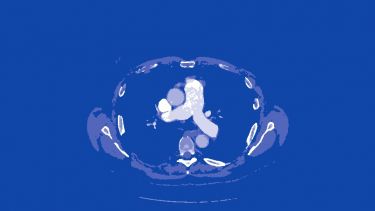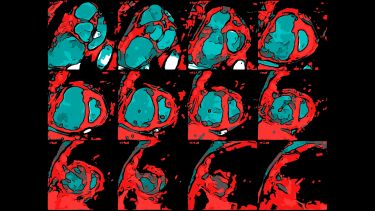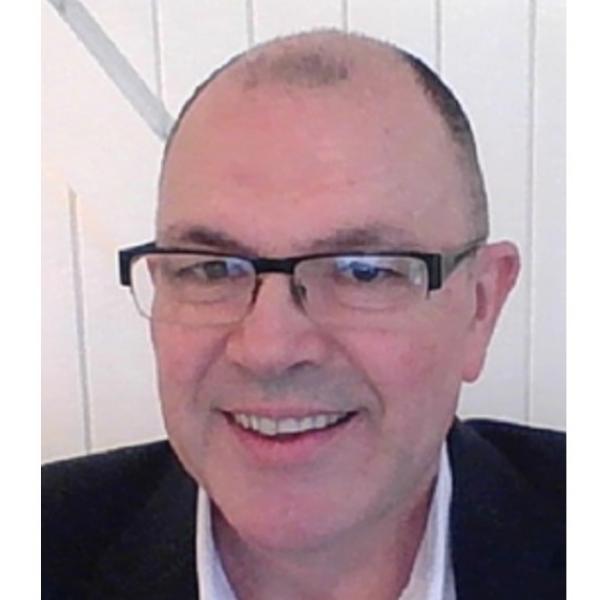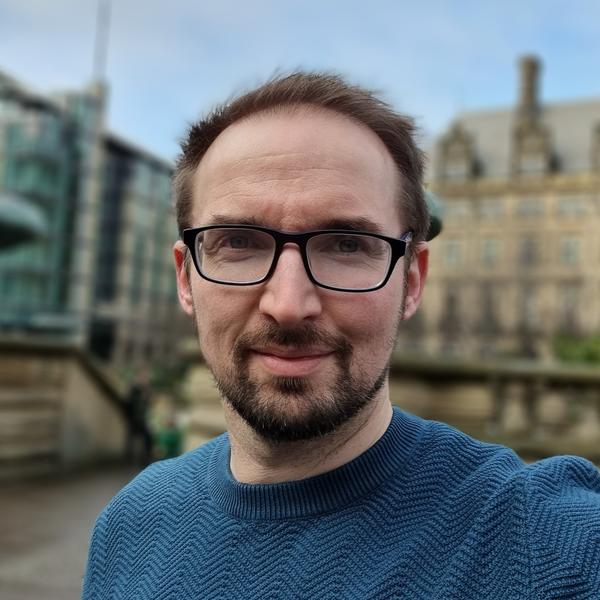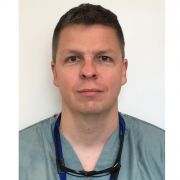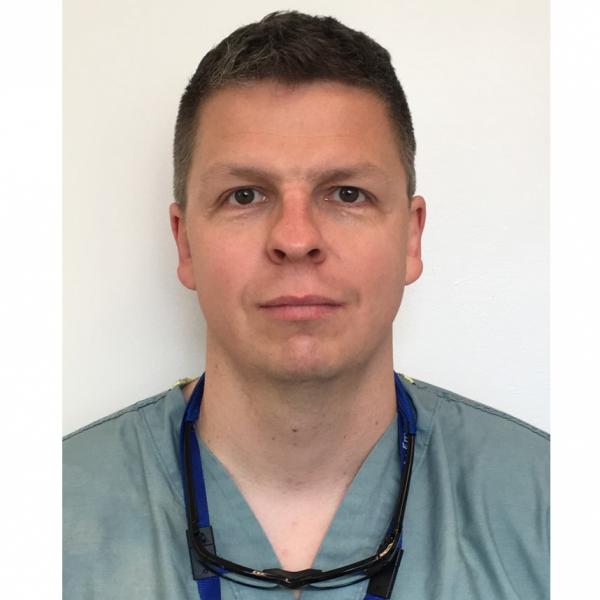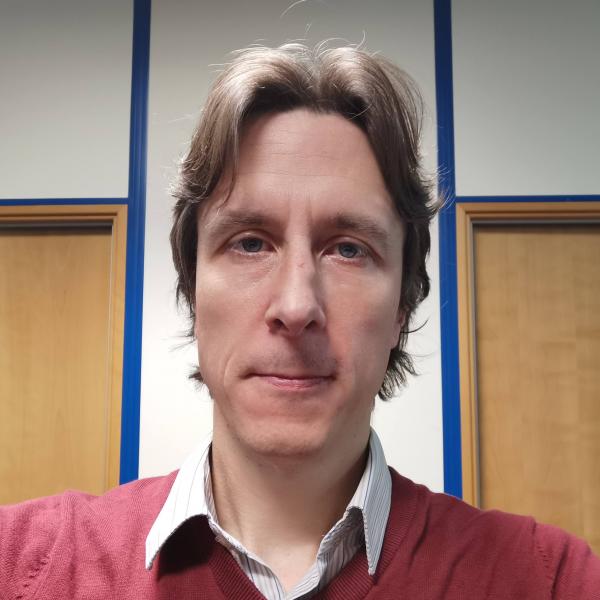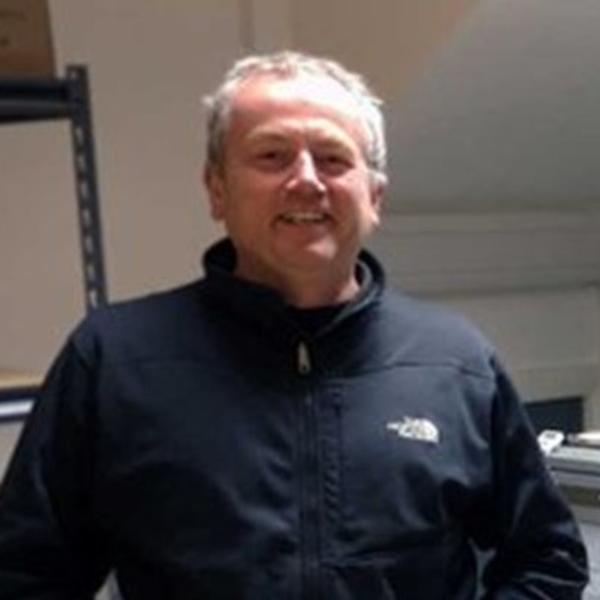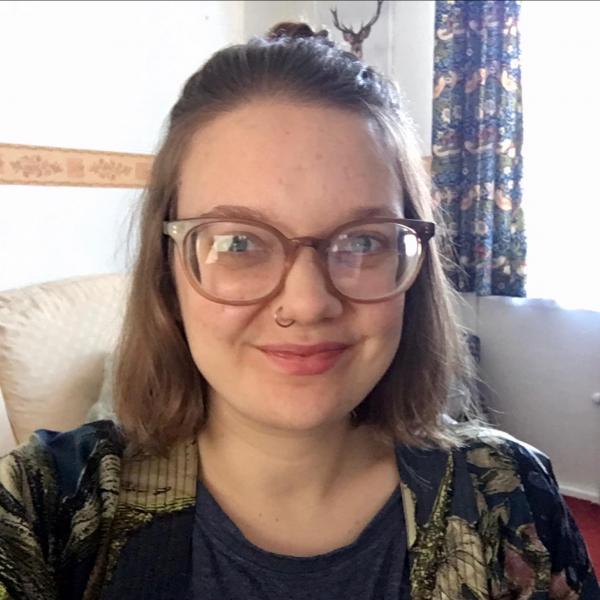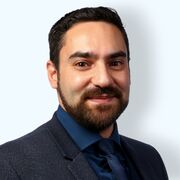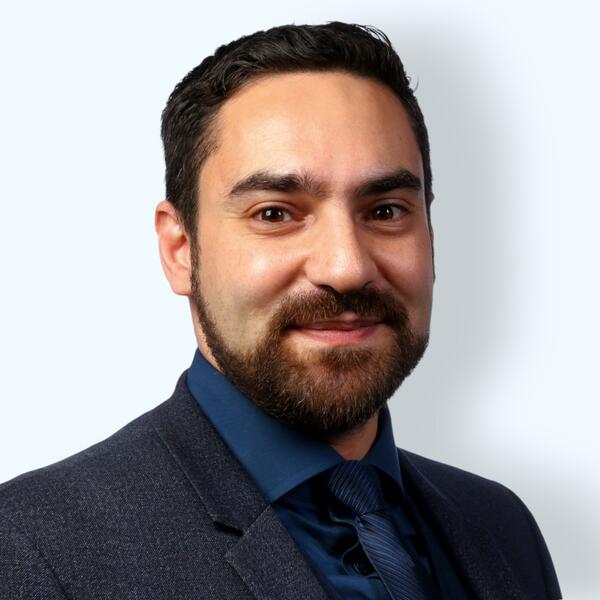Cardiovascular Imaging
Our research in cardiovascular imaging focuses on; coronary haemodynamics, pulmonary circulation, and cardiac form and function.
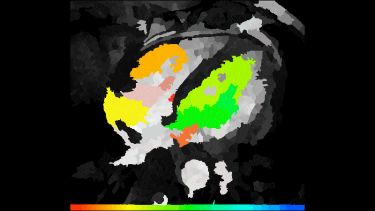
Overview
Our research in cardiovascular imaging focuses on the following main topics:
- Coronary haemodynamics: Image based computer modelling of coronary artery disease and blood flow, clinical decision making in coronary artery disease and imaging to guide complex percutaneous coronary interventions
- Pulmonary circulation: Novel image and data analysis approaches for better phenotyping and risk stratification for individuals with pulmonary vascular disease
- Cardiac form and function: Cardiac imaging to better stratify patients with common cardiac disorders, develop non-invasive haemodynamic models for clinical applications and predict outcomes
Coronary Haemodynamics
Our focus is on analysis of invasive coronary angiogram images to better understand the limitation of blood flow to the myocardium produced by coronary artery disease. This feeds into our computational modelling work. It allows cardiologists to target their interventional therapies to lesions that matter, and reduce hazardous and unnecessary procedures. Our group also aims to develop a better understanding of the interface between coronary flow and myocardial ischaemia using first pass myocardial perfusion on MRI.
Pulmonary Circulation
Our research ambition is to improve the management and outcome of patients with pulmonary vascular disease. We have ongoing projects that aim to:
- Improve the diagnosis of pulmonary hypertension and determine disease severity
- Better stratify patients in diagnostic categories: pulmonary arterial hypertension, pulmonary hypertension associated with left heart disease or lung disease and patients with chronic thromboembolic disease
- Improve risk stratification to allow for better predictions of therapy response and 1 year mortality
Our research utilises data from the ASPIRE registry; a large DICOM imaging repository with computed tomography (CT) and cardiac magnetic resonance (CMR) imaging scans in individuals with suspected pulmonary hypertension cases (>5000 cases). We are developing and utilising machine learning approaches within the group and in collaboration with the Department of Computer Science, and other universities e.g Leiden Medical Centre.
Cardiac form and function
Our vision is to develop an optimal imaging approach for patients with several cardiovascular disorders. We aim to do this by utilising state-of-the-art imaging techniques like four-dimensional flow (4D flow) CMR. Also, we develop novel image analysis approaches to better stratify patients and make better predictions of their clinical outcomes.
We have established a unique partnership with Sheffield Teaching Hospitals through a joint venture called 3D lab. The 3D lab provides a wealth of clinical imaging with encoded clinically relevant data for informing patient outcomes in the real world. The 3D lab imaging database has a large repository of CMR and cardiac CT scans. In the long run, our vision is that this resource will provide access to carry out large observational studies exploring the value of clinical imaging. The main strengths of this database are that it records all imaging based segmentation data, which can be then investigated for patient outcomes. This database is also well integrated with other clinical databases at Sheffield Teaching Hospitals. This pioneering collaboration between the University academics and the NHS is also supported by the technical expertise of the Medical Physics Department of Sheffield Teaching Hospitals.
People, Projects & Publications
- People
-
- Pete Metherall (Clinical Scientist at STH NHS Foundation Trust)
- Michael Sharkey (Clinical Scientist at STH NHS Foundation Trust)
- Current Projects / Grants
-
- 02/2021 – 02/2023. Interactively trained ‘human-in-the-loop’ deep learning approach to improve cardiac CT and MRI assessment for accurate therapy response and mortality prediction. NIHR AI in Health and Care Award. Swift, Wild, Kiely, Shahin, Alabed
- 10/2019 – 10/2021. Wellcome Digital Innovator Award. Developing an intelligent tool to improve prognostic and treatment response assessment on cardiac MRI data with machine learning. Wellcome Digital Innovator Award. Swift, Garg, Kiely and Wild
- 02/2018 – 02/2021. Whole heart, four dimensional flow magnetic resonance imaging for accurate assessment of right and left heart flow haemodynamics. Academy of Medical Sciences. Garg
- 08/2017 – 08/2022. Imaging Pulmonary Vascular Disease: Computational Modelling and large data analytics. Wellcome Trust - Clinical Research Training Fellowship. Swift
- Past Projects / Grants
-
- 07/2017 – 08/2018. Validation of a non-invasive magnetic resonance image based computational tool for the diagnosis of PH. MRC confidence in concept award. PI Swift. CoI’s Garg and Wild
- 01/2016 – 01/2017. Computational imaging assessment of pulmonary haemodynamics for non-invasive diagnosis of patients with pulmonary hypertension. Sheffield Hospitals Charitable Trust.
- 01/2015 – 08/2018. Repeatability of magnetic resonance imaging cardiopulmonary metrics in pulmonary arterial hypertension - Implications for trial design. GlaxoSmithKline. PI Swift. CoI Wild
- 2016 Virtual coronary intervention: instant one-stop in silico treatment planning. BHF Clinical Research Training Fellowship (VIRTU-3). BHF FS/16/48/32306. £343,941. Gosling R, Gunn J
- 2016 A prototype tool to calculate 'virtual' myocardial fractional flow reserve (vFFR) non-invasively (VIRTU-3). NIHR i4i. II-LB-0216-20006. £378,304. Gunn J, Morris P, Smith S, Wilkinson A, Lawford P, Hose R
- Recent Publications
-
- Morris P, Gosling R, Zwierzak I, Evans H, Aubiniere-Robb L, Czechowicz K, Evans P, Hose R, Lawford P, Narracott A, Gunn J. A novel method for measuring absolute coronary blood flow and microvascular resistance in patients with ischaemic heart disease. Cardiovasc Res. 2021 May 25;117(6):1567-1577. doi: 10.1093/cvr/cvaa220.
- Swift AJ, Lu H, Uthoff J, Garg P, Cogliano M, Taylor J, Metherall P, Zhou S, Johns CS, Alabed S, Condliffe RA, Lawrie A, Wild JM, Kiely DG. A machine learning cardiac magnetic resonance approach to extract disease features and automate pulmonary arterial hypertension diagnosis. Eur Heart J Cardiovasc Imaging. 2021 Jan 22;22(2):236-245. doi: 10.1093/ehjci/jeaa001.
- Archer GT, Elhawaz A, Barker N, Fidock B, Rothman A, van der Geest RJ, Hose R, Briffa N, Hall IR, Grech E, Bissell M, Al-Mohammad A, Treibel TA, Swift AJ, Wild JM, Garg P. Validation of four-dimensional flow cardiovascular magnetic resonance for aortic stenosis assessment. Sci Rep. 2020 Jun 29;10(1):10569. doi: 10.1038/s41598-020-66659-6.
- Gabara L, Hinton J, Gunn J, Morris PD, Curzen N. Coronary Physiology Derived from Invasive Angiography: Will it be a Game Changer? Interv Cardiol. 2020 Jun 4;15:e06. doi: 10.15420/icr.2019.25.
- Barker N, Zafar H, Fidock B, Elhawaz A, Al-Mohammad A, Rothman A, Kiely DG, van der Geest RJ, Westenberg J, Swift AJ, Wild JM, Plein S, Garg P. Age-associated changes in 4D flow CMR derived Tricuspid Valvular Flow and Right Ventricular Blood Flow Kinetic Energy. Sci Rep. 2020 Jun 18;10(1):9908. doi: 10.1038/s41598-020-66958-y.
- Swift AJ, Dwivedi K, Johns C, Garg P, Chin M, Currie BJ, Rothman AM, Capener D, Shahin Y, Elliot CA, Charalampopolous T, Sabroe I, Rajaram S, Hill C, Wild JM, Condliffe R, Kiely DG. Diagnostic accuracy of CT pulmonary angiography in suspected pulmonary hypertension. Eur Radiol. 2020 Sep;30(9):4918-4929. doi: 10.1007/s00330-020-06846-1.
- Lewis RA, Billings CG, Bolger A, Bowater S, Charalampopoulos A, Clift P, Elliot CA, English K, Hamilton N, Hill C, Hurdman J, Jenkins PJ, Johns C, MacDonald S, Oliver J, Papaioannou V, Rajaram S, Sabroe I, Swift AJ, Thompson AAR, Kiely DG, Condliffe R. Partial anomalous pulmonary venous drainage in patients presenting with suspected pulmonary hypertension: A series of 90 patients from the ASPIRE registry. Respirology. 2020 Oct;25(10):1066-1072. doi: 10.1111/resp.13815.
- Morris PD, Curzen N, Gunn JP. Angiography-Derived Fractional Flow Reserve: More or Less Physiology? J Am Heart Assoc. 2020 Mar 17;9(6):e015586. doi: 10.1161/JAHA.119.015586.
- Gosling RC, Sturdy J, Morris PD, Fossan FE, Hellevik LR, Lawford P, Hose DR, Gunn J. Effect of side branch flow upon physiological indices in coronary artery disease. J Biomech. 2020 Apr 16;103:109698. doi: 10.1016/j.jbiomech.2020.109698.
- Sinha S, Swift AJ, Kamil MA, Matthews S, Bull MJ, Fisher P, De Fonseka D, Saha S, Edwards JG, Johns CS. The role of imaging in malignant pleural mesothelioma: an update after the 2018 BTS guidelines. Clin Radiol. 2020 Jun;75(6):423-432. doi: 10.1016/j.crad.2019.12.001.
- Whitfield AJ, Solanki R, Johns CS, Kiely D, Wild J, Swift AJ. MRI Prediction of Precapillary Pulmonary Hypertension according to the Sixth World Symposium on Pulmonary Hypertension. Radiology. 2020 Feb;294(2):482. doi: 10.1148/radiol.2019192078.
- Garg P, Swift AJ, Zhong L, Carlhäll CJ, Ebbers T, Westenberg J, Hope MD, Bucciarelli-Ducci C, Bax JJ, Myerson SG. Assessment of mitral valve regurgitation by cardiovascular magnetic resonance imaging. Nat Rev Cardiol. 2020 May;17(5):298-312. doi: 10.1038/s41569-019-0305-z.
- Lewis RA, Johns CS, Cogliano M, Capener D, Tubman E, Elliot CA, Charalampopoulos A, Sabroe I, Thompson AAR, Billings CG, Hamilton N, Baster K, Laud PJ, Hickey PM, Middleton J, Armstrong IJ, Hurdman JA, Lawrie A, Rothman AMK, Wild JM, Condliffe R, Swift AJ, Kiely DG. Identification of Cardiac Magnetic Resonance Imaging Thresholds for Risk Stratification in Pulmonary Arterial Hypertension. Am J Respir Crit Care Med. 2020 Feb 15;201(4):458-468. doi: 10.1164/rccm.201909-1771OC.
- Fidock B, Barker N, Balasubramanian N, Archer G, Fent G, Al-Mohammad A, Richardson J, O'Toole L, Briffa N, Rothman A, van der Geest R, Hose R, Wild JM, Swift AJ, Garg P. A Systematic Review of 4D-Flow MRI Derived Mitral Regurgitation Quantification Methods. Front Cardiovasc Med. 2019 Aug 2;6:103. doi: 10.3389/fcvm.2019.00103.
- Barker N, Fidock B, Johns CS, Kaur H, Archer G, Rajaram S, Hill C, Thomas S, Karunasaagarar K, Capener D, Al-Mohammad A, Rothman A, Kiely DG, Swift AJ, Wild JM, Garg P. A Systematic Review of Right Ventricular Diastolic Assessment by 4D Flow CMR. Biomed Res Int. 2019 Mar 14;2019:6074984. doi: 10.1155/2019/6074984.
- Ferraiuoli P, Fixsen LS, Kappler B, Lopata RGP, Fenner JW, Narracott AJ. Measurement of in vitro cardiac deformation by means of 3D digital image correlation and ultrasound 2D speckle-tracking echocardiography. Med Eng Phys. 2019 Dec;74:146-152. doi: 10.1016/j.medengphy.2019.09.021.
- Ferraiuoli P, Kappler B, van Tuijl S, Stijnen M, de Mol BAJM, Fenner JW, Narracott AJ. Full-field analysis of epicardial strain in an in vitro porcine heart platform. J Mech Behav Biomed Mater. 2019 Mar;91:294-300. doi: 10.1016/j.jmbbm.2018.11.025.
- Kiely DG, Levin D, Hassoun P, Ivy DD, Jone PN, Bwika J, Kawut SM, Lordan J, Lungu A, Mazurek J, Moledina S, Olschewski H, Peacock A, Puri GD, Rahaghi F, Schafer M, Schiebler M, Screaton N, Tawhai M, Van Beek EJ, Vonk-Noordegraaf A, Vanderpool RR, Wort J, Zhao L, Wild J, Vogel-Claussen J, Swift AJ. EXPRESS: Statement on imaging and pulmonary hypertension from the Pulmonary Vascular Research Institute (PVRI). Pulm Circ. 2019 Mar 18;9(3):2045894019841990. doi: 10.1177/2045894019841990.
- Gunn J, Taggart DP. Transcatheter versus surgical intervention: lessons from trials of coronary revascularisation. Heart. 2019 Mar;105(Suppl 2):s44-s49. doi: 10.1136/heartjnl-2018-313518.
- Andrews M, Iqbal J, Wall JJ, Teare D, El-Omar M, Fath-Ordoubadi F, Gunn J. Development and Validation of a Novel Risk Score for Primary Percutaneous Coronary Intervention for ST-Elevation Myocardial Infarction. Cardiovasc Revasc Med. 2019 Nov;20(11):980-984. doi: 10.1016/j.carrev.2018.12.020.
- Gosling RC, Morris PD, Lawford PV, Hose DR, Gunn JP. Personalised fractional flow reserve: a novel concept to optimise myocardial revascularisation. EuroIntervention. 2019 Oct 20;15(8):707-713. doi: 10.4244/EIJ-D-18-00668.
- Saunders LC, Johns CS, Stewart NJ, Oram CJE, Capener DA, Puntmann VO, Elliot CA, Condliffe RC, Kiely DG, Graves MJ, Wild JM, Swift AJ. Diagnostic and prognostic significance of cardiovascular magnetic resonance native myocardial T1 mapping in patients with pulmonary hypertension. J Cardiovasc Magn Reson. 2018 Dec 3;20(1):78. doi: 10.1186/s12968-018-0501-8.
- Johns CS, Kiely DG, Rajaram S, Hill C, Thomas S, Karunasaagarar K, Garg P, Hamilton N, Solanki R, Capener DA, Elliot C, Sabroe I, Charalamopopoulos A, Condliffe R, Wild JM, Swift AJ. Diagnosis of Pulmonary Hypertension with Cardiac MRI: Derivation and Validation of Regression Models. Radiology. 2019 Jan;290(1):61-68. doi: 10.1148/radiol.2018180603.
- Gosling RC, Morris PD, Lawford PV, Hose DR, Gunn JP. Predictive Physiological Modeling of Percutaneous Coronary Intervention - Is Virtual Treatment Planning the Future? Front Physiol. 2018 Aug 13;9:1107. doi: 10.3389/fphys.2018.01107.
- Johns CS, Kiely DG, Swift AJ. Novel imaging techniques in pulmonary hypertension. Curr Opin Cardiol. 2018 Nov;33(6):587-593. doi: 10.1097/HCO.0000000000000559.
- Johns CS, Wild JM, Rajaram S, Tubman E, Capener D, Elliot C, Condliffe R, Charalampopoulos A, Kiely DG, Swift AJ. Identifying At-Risk Patients with Combined Pre- and Postcapillary Pulmonary Hypertension Using Interventricular Septal Angle at Cardiac MRI. Radiology. 2018 Oct;289(1):61-68. doi: 10.1148/radiol.2018180120.
- Chin M, Johns C, Currie BJ, Weatherley N, Hill C, Elliot C, Rajaram S, Wild JM, Condliffe R, Bianchi S, Kiely DG, Swift AJ. Pulmonary Artery Size in Interstitial Lung Disease and Pulmonary Hypertension: Association with Interstitial Lung Disease Severity and Diagnostic Utility. Front Cardiovasc Med. 2018 Jun 8;5:53. doi: 10.3389/fcvm.2018.00053.
- Garg P, Saunders LC, Swift AJ, Wild JM, Plein S. Role of cardiac T1 mapping and extracellular volume in the assessment of myocardial infarction. Anatol J Cardiol. 2018 Jun;19(6):404-411. doi: 10.14744/AnatolJCardiol.2018.39586.
- Gosling RC, Morris PD, Silva Soto DA, Lawford PV, Hose DR, Gunn JP. Virtual Coronary Intervention: A Treatment Planning Tool Based Upon the Angiogram. JACC Cardiovasc Imaging. 2019 May;12(5):865-872. doi: 10.1016/j.jcmg.2018.01.019.
- Currie BJ, Johns C, Chin M, Charalampopolous T, Elliot CA, Garg P, Rajaram S, Hill C, Wild JW, Condliffe RA, Kiely DG, Swift AJ. CT derived left atrial size identifies left heart disease in suspected pulmonary hypertension: Derivation and validation of predictive thresholds. Int J Cardiol. 2018 Jun 1;260:172-177. doi: 10.1016/j.ijcard.2018.02.114.
- Johns CS, Wild JM, Rajaram S, Swift AJ, Kiely DG. Current and emerging imaging techniques in the diagnosis and assessment of pulmonary hypertension. Expert Rev Respir Med. 2018 Feb;12(2):145-160. doi: 10.1080/17476348.2018.1420478. Erratum in: Expert Rev Respir Med. 2018 Jun;12(6):1.

